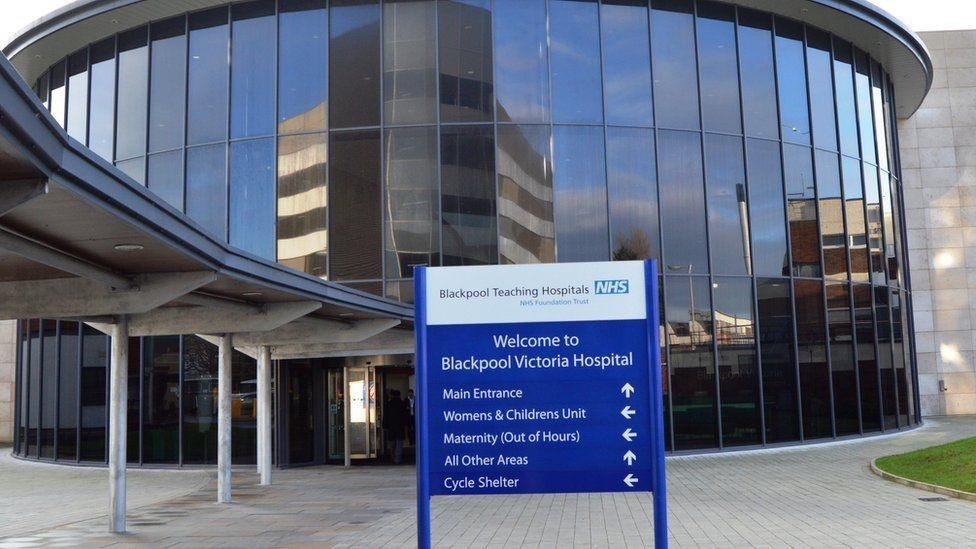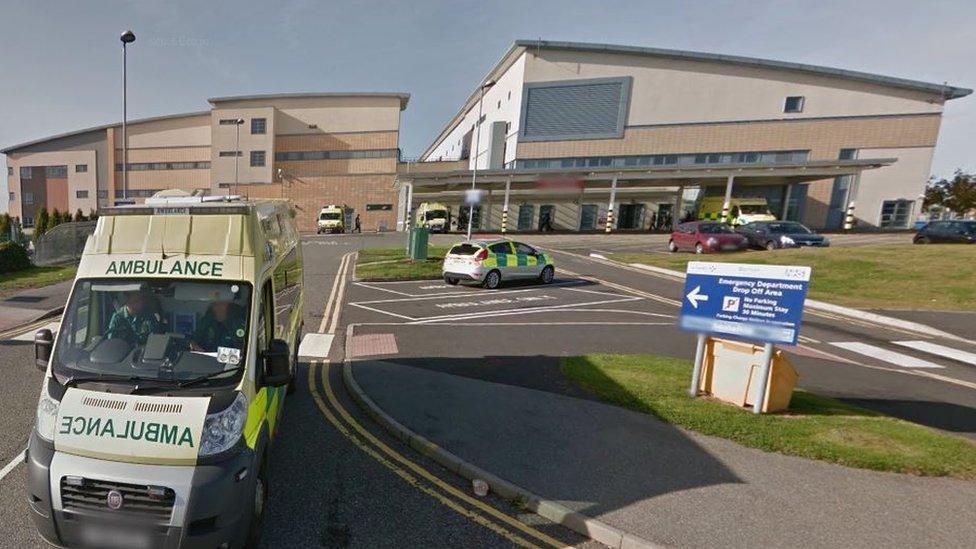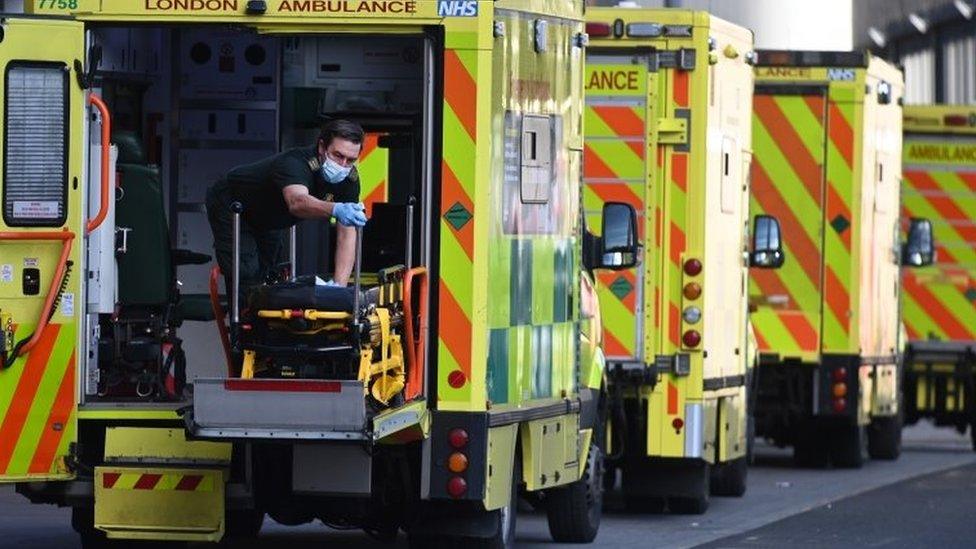Lancashire hospitals under severe pressures, health chiefs say
- Published

Blackpool Victoria Hospital declared a critical internal incident last month
Hospitals in Lancashire are reporting "severe pressures" on emergency departments and the ambulance service.
A "critical" incident remains in place at Blackpool Victoria Hospital as it deals with "huge" numbers of patients.
Meanwhile, the trust which runs the Royal Blackburn and Burnley General hospitals said demand was three times higher than usual this time of year.
Health bosses are urging people to only go to Accident and Emergency (A&E) if absolutely necessary.
It comes as a BBC investigation reported long ambulance delays across the UK were "putting lives at risk".
'Lack of beds'
North West Ambulance Service (NWAS) said it was "extremely busy" and it was seeing a 26% hike in its highest priority incidents for this time of year, prior to the coronavirus pandemic.
Deputy Medical Director Dr Grahame Goode, from Blackpool Teaching Hospitals NHS Foundation Trust, said its A&E department was "exceptionally busy".
He said it had declared a critical internal incident "due to lack of beds and the pressure on our emergency department".
Patients had topped 140, which he said was a "huge number for us", while 13 ambulances also waited to deliver patients.
He urged people to only go to emergency departments if "absolutely necessary", and otherwise to contact their GP or call NHS 111 "to save yourself waiting for hours to be seen".

East Lancashire NHS Foundation Trust says demand for its services are "three times higher than usual"
The boss of East Lancashire Hospitals NHS Foundation Trust said it was facing "great and relentless pressure" with demand three times higher than usual.
Interim Chief Executive Martin Hodgson said the strain was being "felt acutely" by colleagues in all hospital departments and community services too.
Paul Turner, a paramedic and GMB union representative, said the region's ambulance service was also "in crisis".
NWAS faced "phenomenal pressures" and "demand was outstripping underfunded resources", he said.
Mr Turner said patients faced long delays placing huge stress on frontline staff and call operators.
'Above and beyond'
NWAS said staff were working "extremely hard" to ensure that everyone who needed an ambulance gets one.
Hospital handovers were "proving challenging while the NHS as a whole is under pressure", it added.
It said it had taken on additional call handlers and it was increasing the number of ambulances available by using patient transport service staff.
NHS England said that nationally, it had seen more than one million 999 calls and more than 1.4 million patients treated in major A&Es in October, which was the third highest total ever recorded.
It said the NHS 111 service had also received a daily average of 63,000 calls in September, an increase of almost 2,000 on the previous month.
National medical director Prof Stephen Powis said there was "no doubt pressure on the health service remains incredibly high", but staff were "going above and beyond to see more patients and deliver millions more tests, checks, treatments and operations".
The Department for Health and Social Care has been approached for comment by the BBC.

Why not follow BBC North West on Facebook, external, Twitter, external and Instagram, external? You can also send story ideas to northwest.newsonline@bbc.co.uk
- Published11 November 2021
